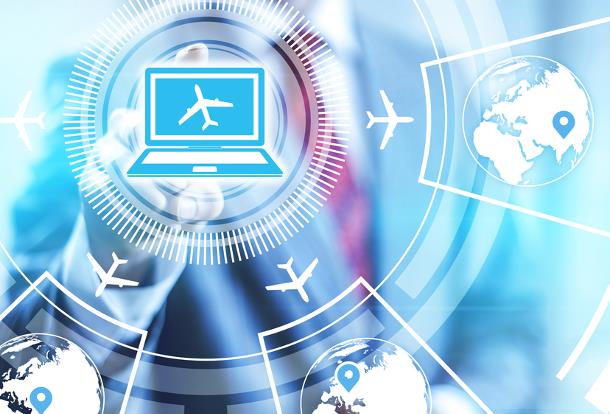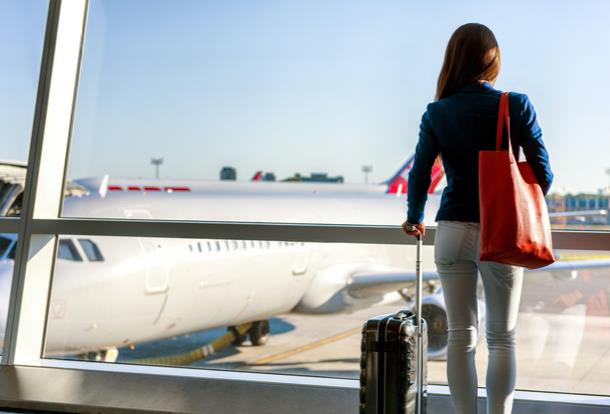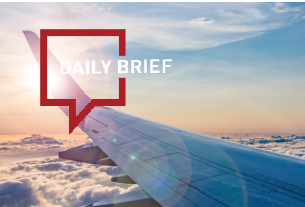No one likes throwing away money. Certainly not airlines. While customers regularly complain about everything, airline professionals know the stress of operating an extremely low-margin business.
The Wall Street Journal reports that the largest seven airlines took in a profit of just $17.75 per passenger in 2017. In the airline business, every dollar matters.
Which leads me to wonder, why are airlines leaving millions of dollars of profit on the table?
Offline and outdated
Almost every airline in the world sells a special product to groups of 10 or more passengers flying together. Group air contracts allow tour operators, schools, sports teams and agencies the ability to reserve large blocks of seats, modify seat amounts and defer payment.
Now here is the insane part - and while you read this, do remember it is 2019: Over 95% of the world’s airlines sell group airfare offline.
In the age of automation and instant fulfillment, airlines have invested major time and energy into creating seamless user experiences. Download almost any major airline app, and experience expert design. Yet, the group sales sector of their business has not been touched by the innovation wand.
If a teacher needs to book 80 seats on a flight for an upcoming school trip, she has to call each airline individually to inquire if seats are available.
Should the airline have availability and a reasonable price, contracts are sent back and forth via email, without even a digital process to sign the contract in most cases.
Airlines have gotten good at selling single tickets in a multitude of channels; yet, they are reluctant to transform their group product and distribute offers online.
Airlines do their best to be counted among innovative, user‐centric companies like Apple, Amazon and Airbnb. But for the small part of their business that is group airfare, it seems they are channeling Blockbuster (we all know how that ended).
Selling group airfare in a siloed, offline manner is not only a lackluster customer experience, it also has a huge financial impact on an airline.
Based on Bacarai's experience, below are six insights and recommendations to the airlines in distribution, strategy and revenue management around the world.
Invest in automating your group sales process, and get ready to publish group offers online.
Several years ago, Lufthansa took a major step forward in digitizing their group sales process and allowing agencies the ability to see real-time pricing and availability for group flights.
Creating a digital group product opens doors and presents airlines with more options. We will talk about where and how to distribute those offers later.
Change your psychology. Group airfare is a premium product; treat it like so.
Group customers have special needs. They need a large amount of seats on a plane.
Consider the example of a high school band marching in the Macy’s Day Parade. If they can’t get 80 seats on a plane together, they may not go!
In selling single tickets, the airline needs the customer. In selling group tickets, the customer needs the airline.
Also, group contracts have awesome benefits. Customers can reserve space with a refundable deposit and delay the final balance (usually) until 30 days. Customers can even change names for free on most carriers up until 72 hours prior to departure.
Those are some amazing terms. Treat your group product like the premium product that it is.
Charge a $50 nonrefundable fee for people to hold group space.
The airlines have no idea they are getting raked over the coals. Their travel agent customers are abusing them, holding space unnecessary with little to no intention to fill all the seats requested.
Travel agents regularly call three to four airlines and hold contracts with all of them. A request for 50 seats would often cause 200 seats to come out of inventory, across multiple airlines.
Customers will compare flights and rates. The lack of a central marketplace or means to quickly get quotes means agents have to hold space as they shopped.
Airlines get abused by multiple and duplicate requests every day, and it costs them millions.
Charging $50 to hold space would qualify the buyer and eliminate waste. Airlines also field hundreds of thousands of requests, so the $50 fee would help profitability.
NDC is growing up, and so should your profit margins
Technology continues to advance as airlines develop the ability to sell more products to consumers. The revenue opportunity is clear for an airlines group program.
Group passengers want to buy more products! Citing internal research, over 23% of all groups would pay for advanced seat assignments, pre‐pay bags, purchase lounge access and more.
Because the airlines rely on an offline, call-center model to do their sales, there is no chance at selling groups ancillaries.
At Bacarai, we are exploring using NDC connections to further upsell group passengers. As more capabilities are added, the airlines can make millions more off their groups should they choose to evolve their groups programs.
Did airlines forget time is money? Distributing group airfare offline is expensive.
In the airline industry, every dollar, every pound and every minute counts.
The average group contract takes an airline about 14 to 20 minutes to produce for the customer, and this is with extremely low conversion rates.
Automating your group sales and publishing offers online frees up your agents to handle higher-level tasks and reduces the overall cost of your group program.
Let your people handle the people. Leave the data retrieval to the machines.
After you bring your group air program online, get smart about where to publish offers.
Let’s get something straight. Customers are going to price shop. Period.
In fact, the airline industry has made it very time-consuming to price shop for group airfare. Yet, 95% of all customers booking group airfare call and hold space with multiple airlines as they compare rates.
When customers price shop offline or in a siloed manner, it hurts the airlines, as cancelation rates run rampant.
Last summer, Delta shuttered access to their group program due to high cancelations.
So, while automating your group program will decrease costs, improve the customer experience and eventually allow an airline to sell more products - it isn’t a total solution, as it doesn’t solve the cancelation problem that plagues the industry.
In the immediate future, group airfare will be single channel. In the long term, group offers will be published to a central marketplace.
Conclusion
The future looks digital for group airfare - which means higher yields, better efficiency and lower costs.
Offering a digital shopping experience for group airfare lowers operating costs and increases operational efficiency, all the while providing new revenue opportunities and exposure.
Group airfare will likely follow a similar evolutionary path as single tickets. Airlines will realize the potential, put group offers online in a single channel and then start to distribute offers in multiple channels.
Read Original Article




